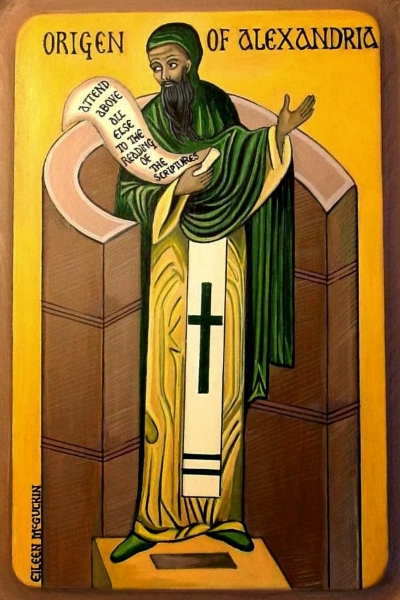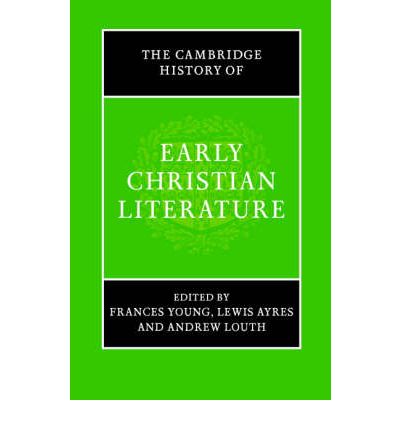Podcast: Play in new window | Download
Subscribe: Spotify | Email | RSS
 What happened after the famous council at Nicea in 325? Was there rejoicing and peace, now that the “Arian” controversy had been definitively settled?
What happened after the famous council at Nicea in 325? Was there rejoicing and peace, now that the “Arian” controversy had been definitively settled?
Sadly, no. At first, there was seemingly a lull in the storm, during which catholics neither rallied for or against the creed and its novel language of Father and Son being “one ousia” and about the latter being “from the ousia of” the former. Eventually, though, some Christians came to think this new language was unhelpful, while others started to think it was important. In response to some goading by Athanasius and others, about ninety eastern bishops met in a synod at Antioch in the year 341, the occasion being the dedication of big new church there, attended by their emperor.
Before disbanding, they issued at least two creeds, known to history as the First Creed for the Council of Antioch, and the more important Second Creed, which came to be known as the Dedication Creed. These expressed the views of a substantial party of bishops in this era. While disavowing the specific claims of Arius, they also seem to be disavowing the Nicene creed, replacing the controversial claims mentioned above with milder, more widely acceptable ones. Here, Jesus is not “true God from true God” but rather “God from God.” They also pushed back against the then new slander that they were “Arians,” i.e. disciples of Arius. For them, the members of the trinity are three beings who are “one in agreement.” And the Son they seem to allow to be a creature, however they stress, not on a par with other creatures, not a “creature” in the same sense as others are. In short, it is an anti-Arius and anti-“Sabellian” subordinationist catholic creed.
Links for this episode:
- podcast 2 – the “Athanasian Creed”
- podcast 12 – the Apostles’ Creed
- podcast 29 – Arius
- podcast 30 – The Council of Nicea
- podcast 31 – Dr. William Hasker on the “Arian” Controversy
- Athanasius of Alexandria (c. 293-373)
- R.P.C. Hanson’s The Search for the Christian Doctrine of God. The most comprehensive historical account of the whole controversy before and after the council at Nicea.
- Richard Rubenstein, When Jesus Became God. A readable popular account of the controversy surrounding Arius, and the 325 council.
- Leo Donald Davis, The First Seven Ecumenical Councils (325-787): Their History and Theology. An excellent, scholarly but readable historical and theological summary.
- Tanner, ed. Decrees of the Ecumenical Councils – Not merely the first seven, but all those accepted by Roman Catholics. A valuable resource, with both English translations and the original languages.
 Young, Ayres, and Louth (eds.) The Cambridge History of Early Christian Literature. Lots of good stuff in here. In this episode I read and summarized some of Louis Ayres’s chapter 38 “Articulating Identity.”
Young, Ayres, and Louth (eds.) The Cambridge History of Early Christian Literature. Lots of good stuff in here. In this episode I read and summarized some of Louis Ayres’s chapter 38 “Articulating Identity.”- Philo of Alexandria
- podcasts dealing with 2nd c. “logos” theories
- podcast 76 – Justin Martyr’s Dialogue with Trypho – Part 3
- podcast 75 – Justin Martyr’s Dialogue with Trypho – Part 2
- podcast 74 – Justin Martyr’s Dialogue with Trypho – Part 1
- podcast 73 – Is Proverbs 8 about Jesus? Part 3
- podcast 72 – Is Proverbs 8 about Jesus? Part 2
- podcast 71 – Is Proverbs 8 about Jesus? Part 1
- podcast 24 – How to be a monotheistic trinitarian
- podcast 11 – Tertullian the unitarian
- posts @ trinities on Origen of Alexandria
- 2 recent posts on what “same ousia” might have meant to the 325 council
- This week’s thinking music is “You Um, I’ll Ah“ by Doctor Turtle.

Hi Dale, I’m glad you called out the term “Arian” as Athanasian slander. This shows how compassionate you are in your review of church history, as well as insightful.
Looking forward to Part 2, Dale.
Really good episode, it flows like good story.
I will just add that bishops of Rome, Alexandria and Antioch got a greater preference because they were bishops of largest metropolitan cities in Roman empire compared to lesser bishoprics and thereby under charge of bigger population. Rome was the capital of Roman State since antiquity and once Rome annexed two major Greek empires, Seleucids and Ptolemiacs, their capitals respectively Antioch and Alexandria also became important metropolitan cities in the new Roman Empire. Moreover, there was reassignment of bishoprics in one of canons of the council of Nicaea where all of Eastern bishoprics were put under Patriarch of Antioch, all of Egypt and Africa was put under Patriarch of Alexandria and rest were put under Pope of Rome.
Comments are closed.